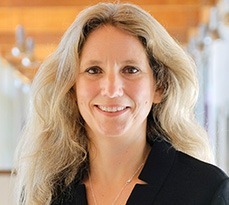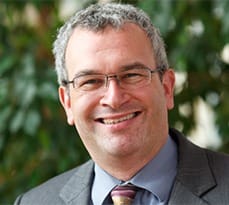The new Cambridge Zero initiative of the University of Cambridge will generate ideas to help shape a sustainable future. David Reiner and Michael Pollitt of Cambridge Judge Business School are among those involved.

Cambridge is the brand-new holder of a dubious record. On 25 July 2019, the temperature at the University’s Botanic Garden hit a new all-time record high for the UK: 38.7°C.
Few expect this record to hold for long. As temperatures rise globally, extreme weather events – floods, storms, droughts and heatwaves – are becoming the new normal. The Intergovernmental Panel on Climate Change (IPCC) has clearly articulated that, if this continues, we risk venturing into a world of climate-driven food shortages, water stress, refugees, species loss and catastrophic shocks such as the collapse of the vast polar ice sheets.
Scientists have been warning for decades that man-made climate change is happening. But with a few exceptions, we have done little about it. In the past 18 months, however, there has been a noticeable shift.

“The basic science hasn’t changed: what is starting to change is public opinion,” says Dr Emily Shuckburgh, one of the UK’s leading climate scientists. “As the impacts of climate change are starting to be felt around the world, it’s finally cutting through that we need to do something and we need to do it now.”
Shuckburgh recently joined the University from the British Antarctic Survey to lead an ambitious new programme: Cambridge Zero. The programme will harness the full breadth of the University’s research capabilities across the sciences, engineering, humanities and social sciences to respond to climate change and support the transition to a resilient, sustainable future.
Cambridge Zero is not just about developing greener fuels, technologies and materials. It’s about addressing every aspect of a zero carbon future: the impact it will have on our lives, our work, our society and our economy, and ensuring decisions are based on the best available knowledge.
By developing a bold programme of education, research, demonstration projects and knowledge exchange focused on supporting a zero carbon world, the initiative’s ambition is to generate and disseminate the ideas and innovations that will shape our future. Its launch comes a few months after the UK became the first major world economy to legislate for net zero emissions. Eliminating greenhouse gas emissions by 2050 will mean a fundamental change over the coming decades in all aspects of our economy.
Clean energy
“The challenge is how to develop the technologies for the energy transition at the scale, and on the timescales, that we need,” says Professor Sir Richard Friend, Director of Energy Transitions@Cambridge, which brings together over 250 Cambridge researchers working on areas such as bioenergy, batteries, photovoltaics, carbon capture, propulsion and power, and cities and transport.
Climate change policy
Even if a scientist or engineer develops a new technology that solves a problem associated with the energy transition, how do policy changes make the most of innovation?
This question lies at the heart of the work of Laura Diaz Anadon, Professor of Climate Change Policy in Cambridge’s Centre for Environment, Energy and Natural Resource Governance, and a lead author on the IPCC’s sixth Assessment Report.
“When I first moved into policy and economics work after my PhD in chemical engineering, I was focused on solutions as if they were things that people could and would start using tomorrow. I realised quickly that I wasn’t thinking about cost-effectiveness and the role of policy, regulation, business models, political support and their impacts. That was really eye-opening for me,” says Diaz Anadon.

“Climate change policy is particularly challenging as it cuts across so many sectors and demands engagement with many different stakeholders,” says Dr David Reiner, from the Energy Policy Research Group at Cambridge Judge Business School, and one of the co-editors of the recent book In Search of Good Energy Policy with Professor Michael Pollitt. “Good policy isn’t just about getting the numbers right, because even the numbers are controversial,” says Reiner. “Different groups have different priorities, so how do we determine which numbers to put stock in and which things are actually important?”
Shuckburgh is echoing this broad approach in Cambridge Zero. “This is a once-in-a-generation opportunity for us to make an impact, which is why it’s vital we bring in multiple perspectives to ensure that we’re translating scientific knowledge into innovations that are rapidly deployed in the real world – and robust, evidence-based policy that works for everyone,” she says.
“It’s great to see climate change finally breaking through as a priority with the public,” says Pollitt. “But the challenge has always been when you start asking about specifics. Lifestyle changes are cheap, but they’re intrusive. And if you aren’t willing to become a vegetarian, turn the heating down or stop flying, then you’re going to need serious decarbonisation policies to reach where we need to get to.”

A major energy policy – such as decarbonising the electricity grid or banning petrol cars – generally requires a decade of planning, and another two decades to implement. It also requires public engagement, says Pollitt: “If the public feel they haven’t been consulted on a new policy, they’re less likely to support it, and they need to see that these policies have benefits that minimise the negative effects. A carbon neutral economy isn’t unachievable, but there are massive challenges associated with it, and we have to face those challenges with eyes wide open.”
Sustainable finance
Beyond policy, the transition to a zero carbon future will also require unprecedented levels of government, private and institutional investment in green and low carbon technologies, services and infrastructure. And financial institutions themselves will need to move to a sustainable finance model, pricing environmental and social risks correctly.
These are areas that interest Dr Nina Seega at the Cambridge Institute for Sustainability Leadership, which bridges the worlds of business, policymaking and finance. “Since the attention called to the issue by the G20 Green Finance Study Group in 2016, we’ve seen lots of discussion about sustainable finance in the financial world but more action is needed to thread sustainable finance into the day-to-day work of financial firms.”
Reasons to be optimistic
One of the major successes of global efforts in energy and climate policy has been advances in developing low carbon solutions, which is beginning to pay off. Just since 2010, the average cost of producing electricity globally from solar PV panels has decreased by 77 per cent, and from wind turbines by 34 per cent, and the cost of storing energy in lithium-ion batteries has decreased by 89 per cent, in turn making electric vehicles less expensive.
“Cambridge has the power to bring together industry, finance, policymakers, NGOs and other partners to jointly propose ambitious solutions. But we all need to work together to make this happen,” says Shuckburgh. “The human race has achieved incredible things: lifted billions of people out of poverty, cured diseases, travelled to the moon. The biggest challenge now is how we preserve our only home for future generations, and we need to respond to the challenge with all of our efforts. We cannot fail.”
This feature was adapted from a longer version that appeared in issue 39 of the Research Horizons magazine, which features pioneering research from the University of Cambridge.

